Abstract
Fifteen overweight girls aged 5 to 11 yr were randomly assigned to one of two weight-reduction treatments: response-cost plus reinforcement, response-cost only, or a no-treatment control group. In the response-cost plus reinforcement group, parents contracted to facilitate their child's weight loss by carrying out reinforcement and stimulus control techniques, completing weekly charts and graphs, and encouraging their child to exercise. The response-cost only group parents did not contract to reinforce their child's performance. The response-cost program applied to both experimental groups was conducted in weekly meetings in which parents lost previously deposited sums of money. Twenty-five per cent was deducted for missing the weekly meeting, 25% for failing to fill out charts and graphs, and 50% if their child failed to meet her specified weekly weight-loss goal. At the end of the 12-week treatment period, both experimental groups had lost significantly more weight than the control group. After an eight-week, no-contact follow-up, some of the lost weight was regained. The response-cost plus reinforcement group was still significantly below the controls. The response-cost group just missed significance. A 31-week, no-contact follow-up failed to show a treatment effect, but did show a trend towards slower weight gain by the response-cost plus reinforcement group.
Full text
PDF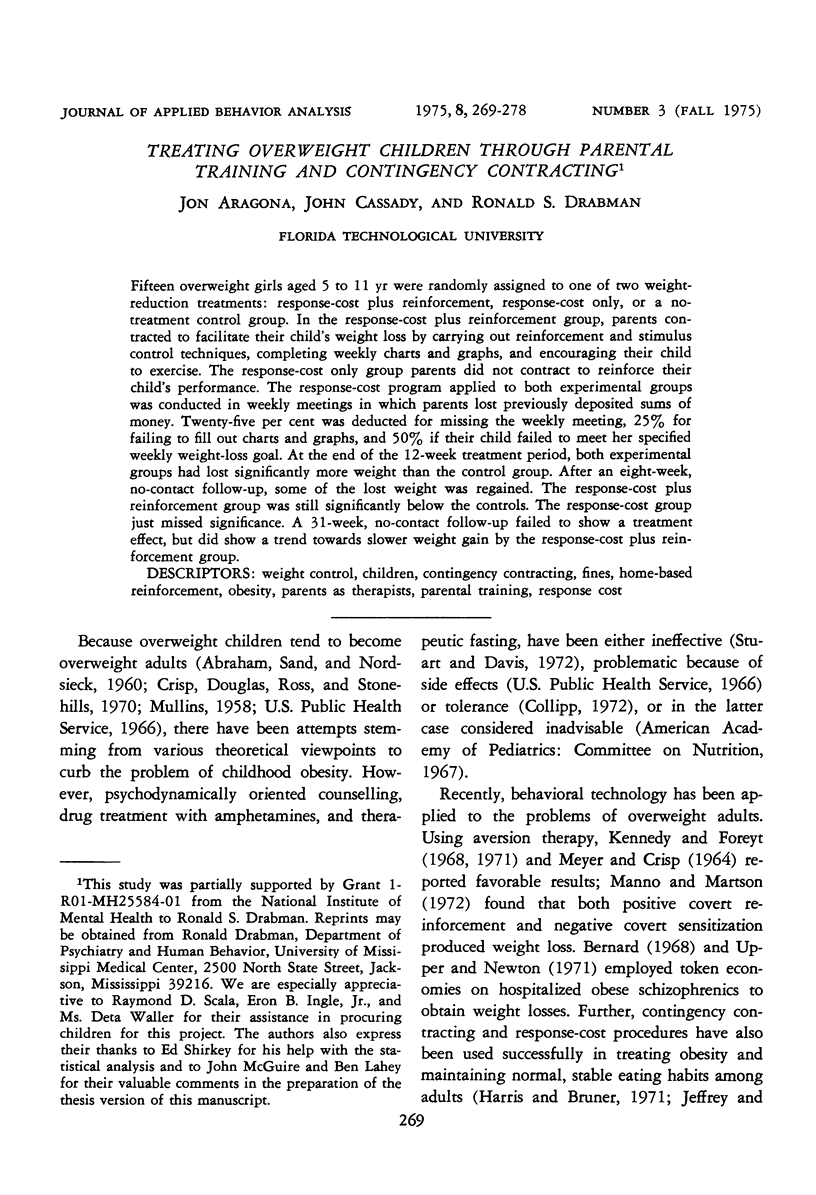
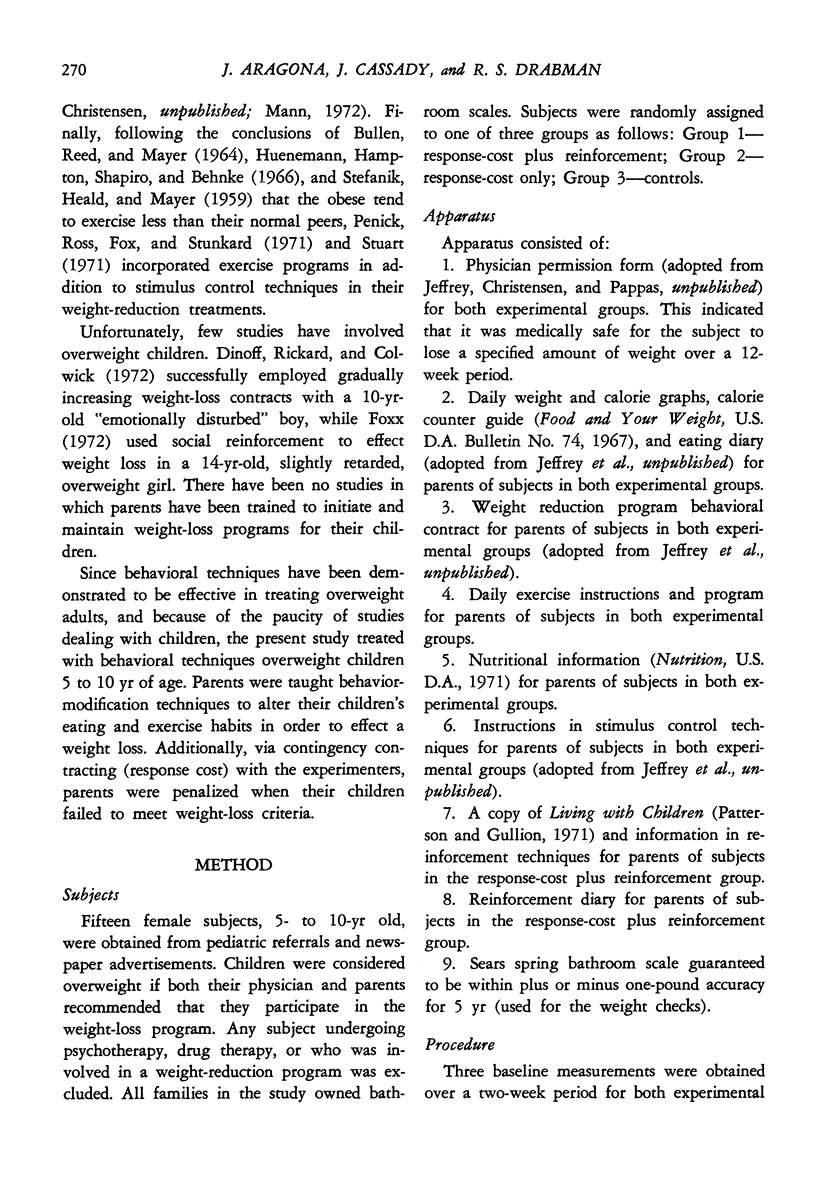
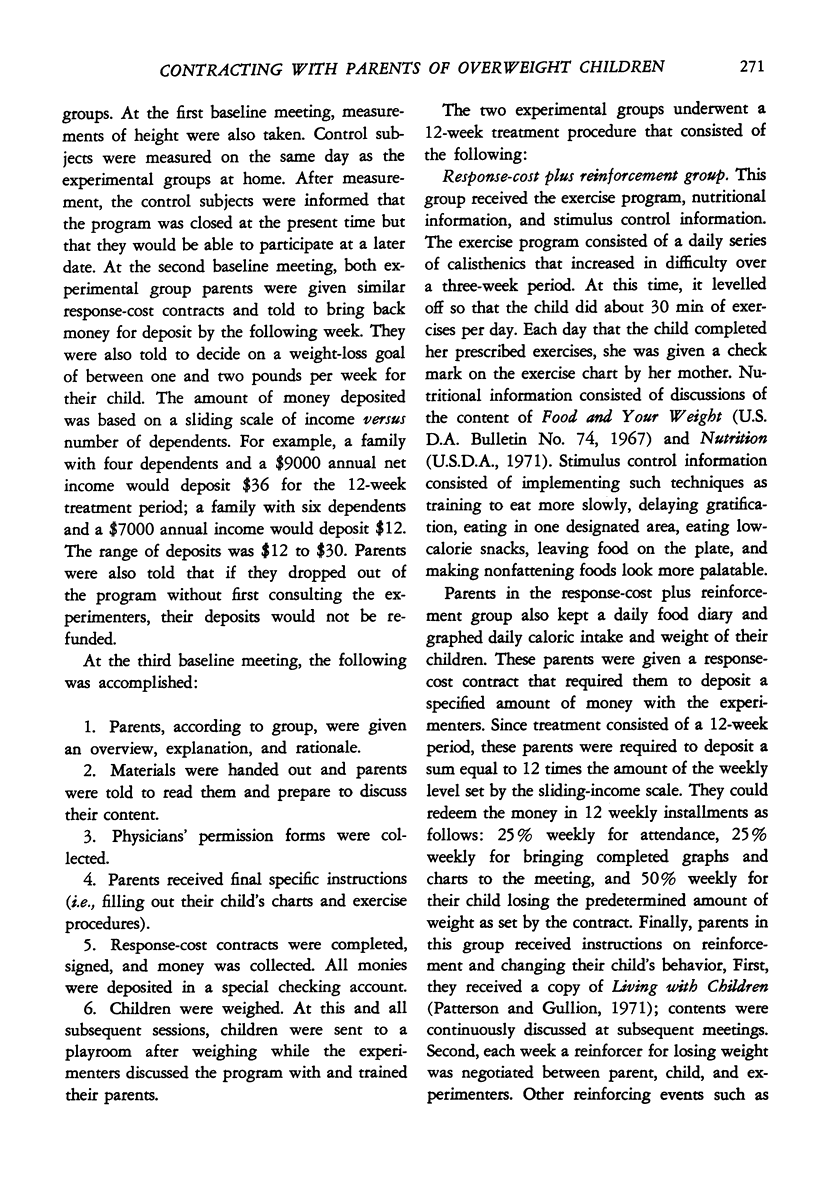
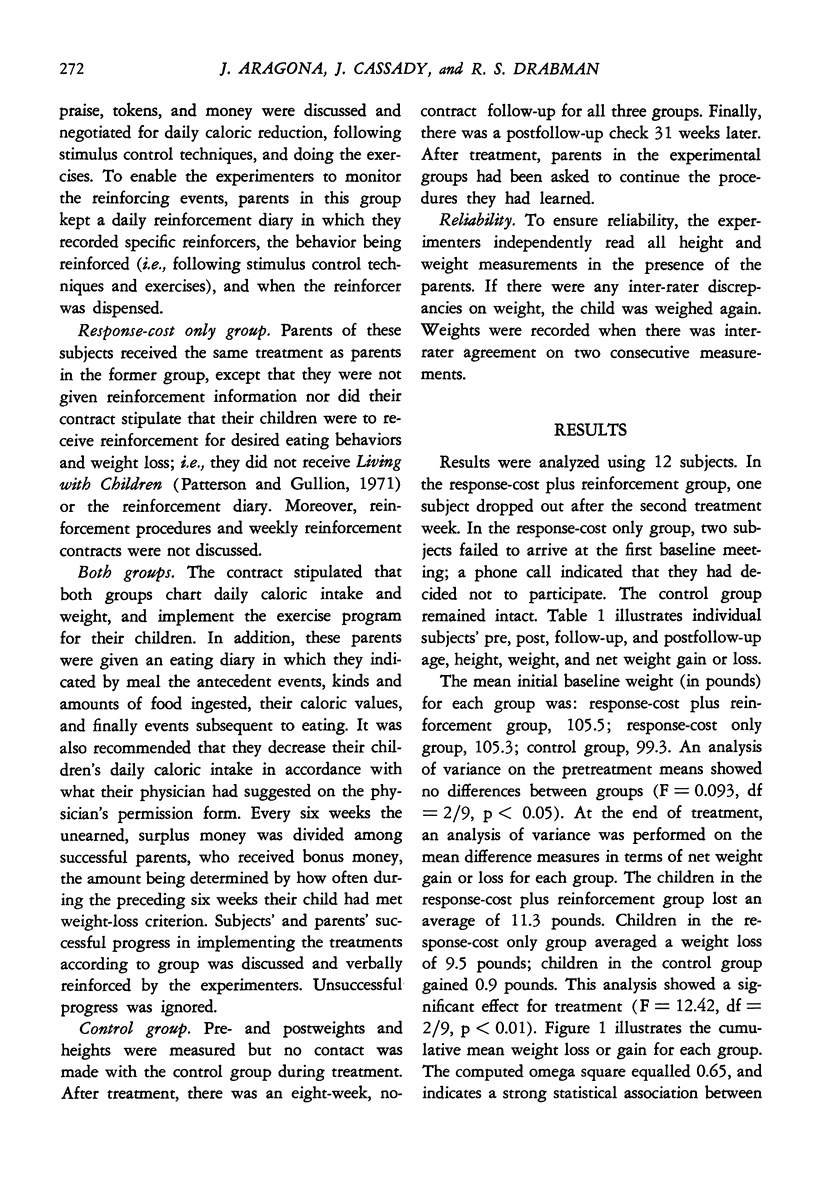
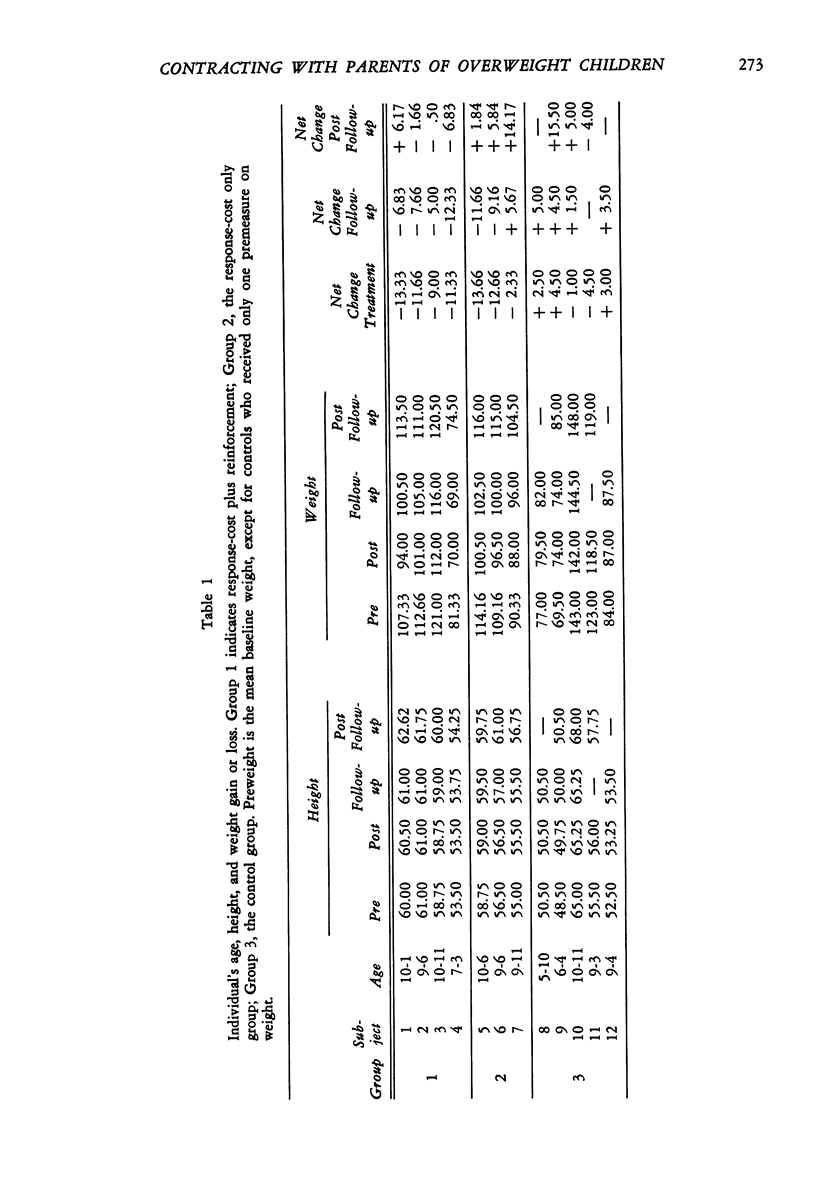
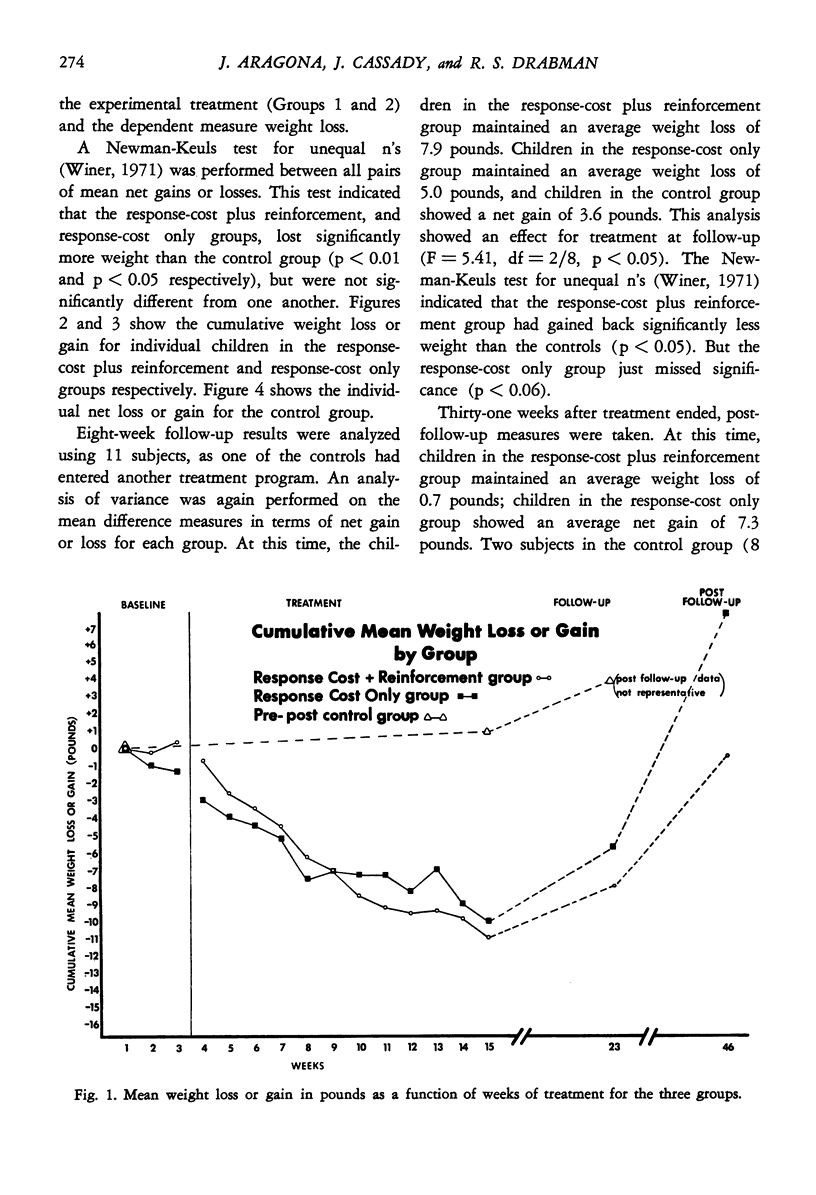
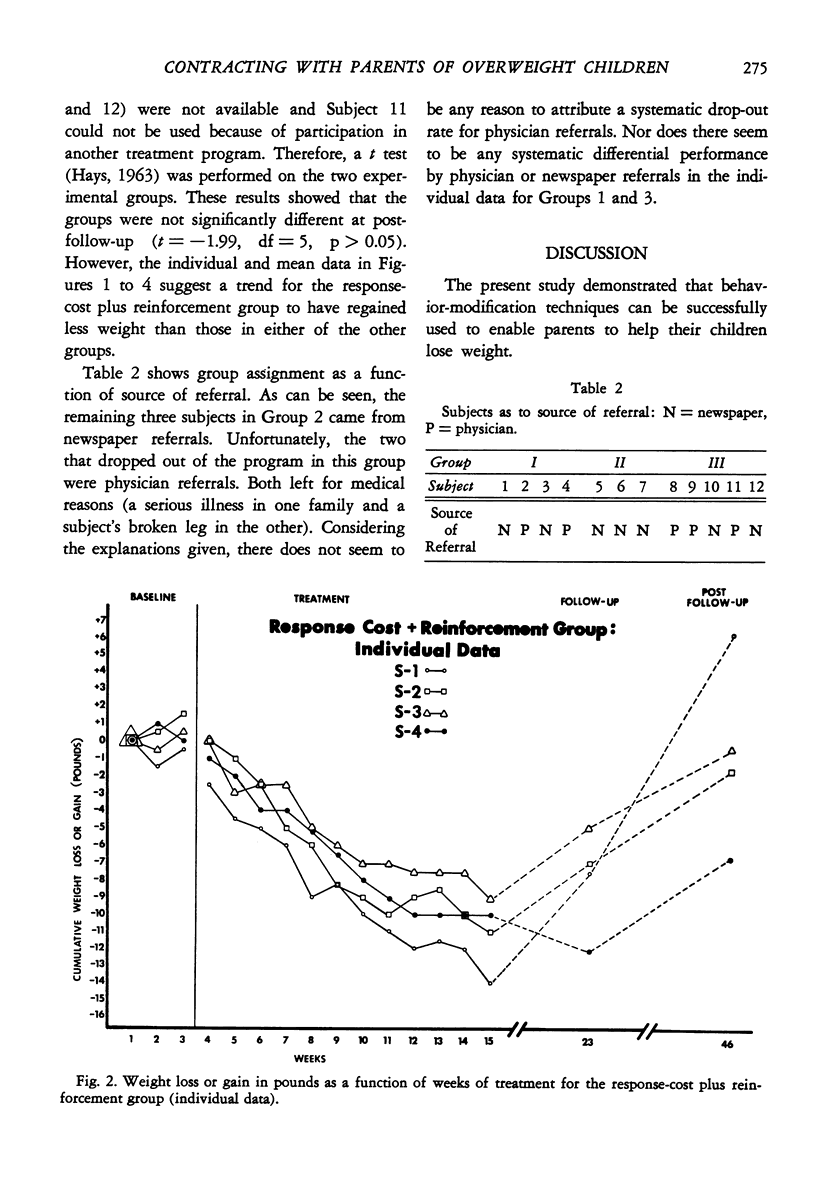
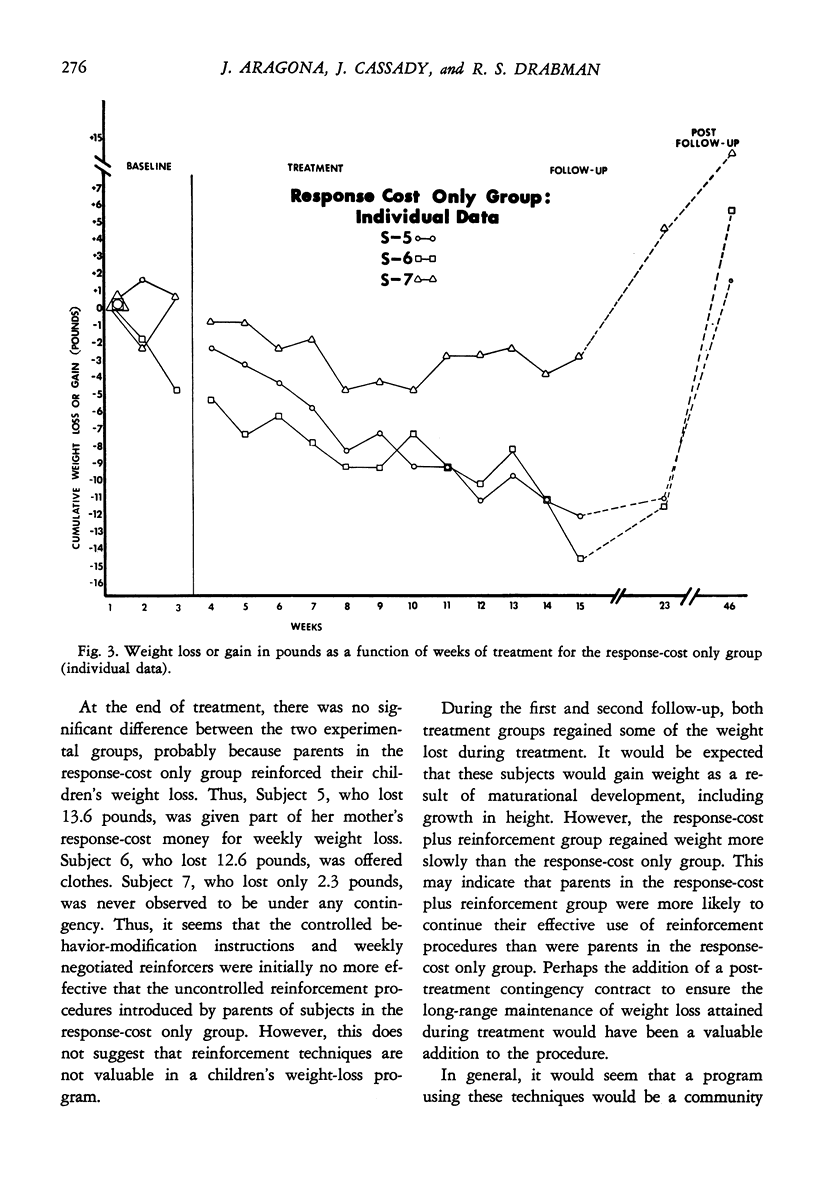
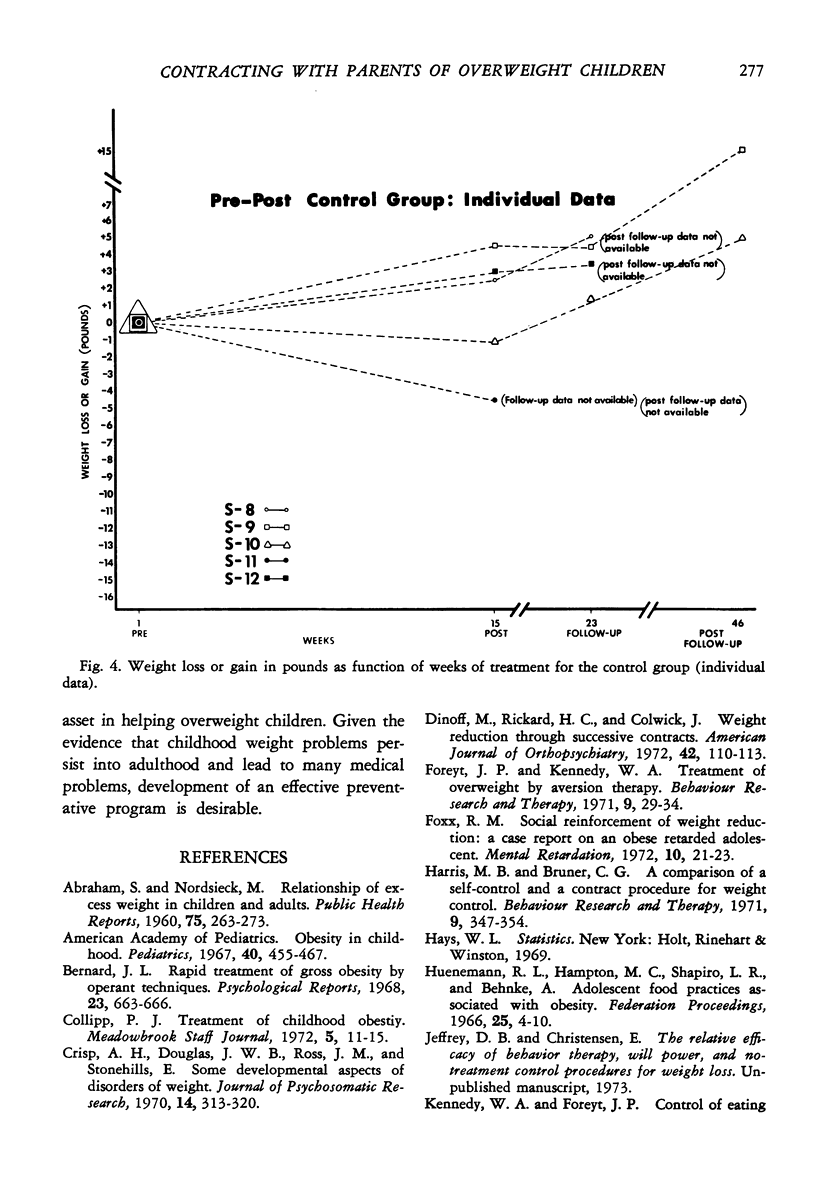
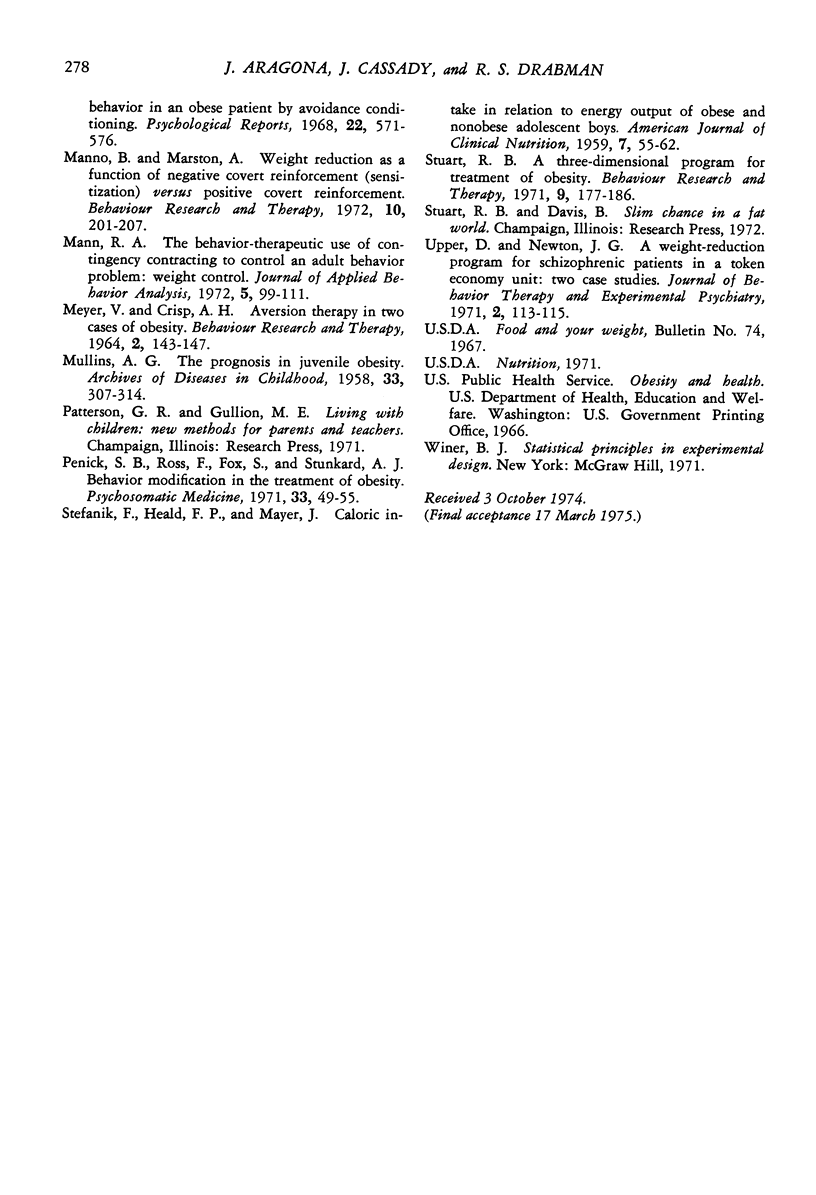
Selected References
These references are in PubMed. This may not be the complete list of references from this article.
- ABRAHAM S., NORDSIECK M. Relationship of excess weight in children and adults. Public Health Rep. 1960 Mar;75:263–273. [PMC free article] [PubMed] [Google Scholar]
- Bernard J. L. Rapid treatment of gross obesity by operant techniques. Psychol Rep. 1968 Oct;23(2):663–666. doi: 10.2466/pr0.1968.23.2.663. [DOI] [PubMed] [Google Scholar]
- Crisp A. H., Douglas J. W., Ross J. M., Stonehill E. Some developmental aspects of disorders of weight. J Psychosom Res. 1970 Sep;14(3):313–320. doi: 10.1016/0022-3999(70)90059-0. [DOI] [PubMed] [Google Scholar]
- Dinoff M., Rickard H. C., Colwick J. Weight reduction through successive contracts. Am J Orthopsychiatry. 1972 Jan;42(1):110–113. doi: 10.1111/j.1939-0025.1972.tb02477.x. [DOI] [PubMed] [Google Scholar]
- Foreyt J. P., Kennedy W. A. Treatment of overweight by aversion therapy. Behav Res Ther. 1971 Feb;9(1):29–34. doi: 10.1016/0005-7967(71)90033-7. [DOI] [PubMed] [Google Scholar]
- Foxx R. M. Social reinforcement of weight reduction: a case report on an obese retarded adolescent. Ment Retard. 1972 Aug;10(4):21–23. [PubMed] [Google Scholar]
- Harris M. B., Bruner C. G. A comparison of a self-control and a contract procedure for weight control. Behav Res Ther. 1971 Nov;9(4):347–354. doi: 10.1016/0005-7967(71)90047-7. [DOI] [PubMed] [Google Scholar]
- Huenemann R. L., Hampton M. C., Shapiro L. R., Behnke A. R. Adolescent food practices associated with obesity. Fed Proc. 1966 Jan-Feb;25(1):4–10. [PubMed] [Google Scholar]
- Kennedy W. A., Foreyt J. P. Control of eating behavior in an obese patient by avoidance conditioning. Psychol Rep. 1968 Apr;22(2):571–576. doi: 10.2466/pr0.1968.22.2.571. [DOI] [PubMed] [Google Scholar]
- MEYER V., CRISP A. H. AVERSION THERAPY IN TWO CASES OF OBESITY. Behav Res Ther. 1964 Sep;2:143–147. doi: 10.1016/0005-7967(64)90008-7. [DOI] [PubMed] [Google Scholar]
- MULLINS A. G. The prognosis in juvenile obesity. Arch Dis Child. 1958 Aug;33(170):307–314. doi: 10.1136/adc.33.170.307. [DOI] [PMC free article] [PubMed] [Google Scholar]
- Mann R. A. The behavior-therapeutic use of contingency contracting to control an adult behavior problem: weight control. J Appl Behav Anal. 1972 Summer;5(2):99–109. doi: 10.1901/jaba.1972.5-99. [DOI] [PMC free article] [PubMed] [Google Scholar]
- Manno B., Marston A. R. Weight reduction as a function of negative covert reinforcement (sensitization) versus positive covert reinforcement. Behav Res Ther. 1972 Aug;10(3):201–207. doi: 10.1016/0005-7967(72)90036-8. [DOI] [PubMed] [Google Scholar]
- Obesity in childhood. Pediatrics. 1967 Sep;40(3):455–467. [PubMed] [Google Scholar]
- Penick S. B., Filion R., Fox S., Stunkard A. J. Behavior modification in the treatment of obesity. Psychosom Med. 1971 Jan-Feb;33(1):49–55. doi: 10.1097/00006842-197101000-00003. [DOI] [PubMed] [Google Scholar]
- STEFANIK P. A., HEALD F. P., Jr, MAYER J. Caloric intake in relation to energy output of obese and non-obese adolescent boys. Am J Clin Nutr. 1959 Jan-Feb;7(1):55–62. doi: 10.1093/ajcn/7.1.55. [DOI] [PubMed] [Google Scholar]
- Stuart R. B. A three-dimensional program for the treatment of obesity. Behav Res Ther. 1971 Aug;9(3):177–186. doi: 10.1016/0005-7967(71)90003-9. [DOI] [PubMed] [Google Scholar]


